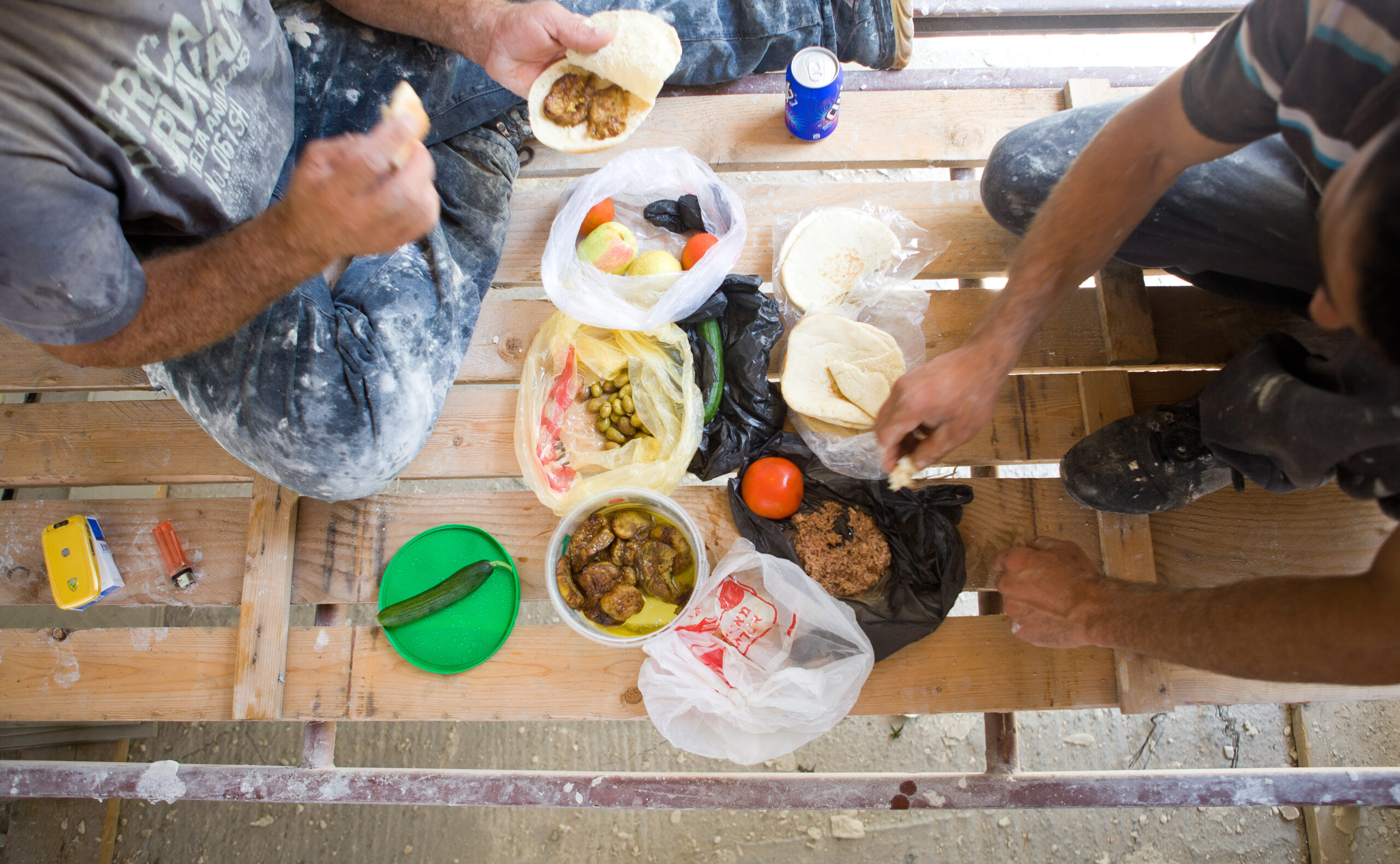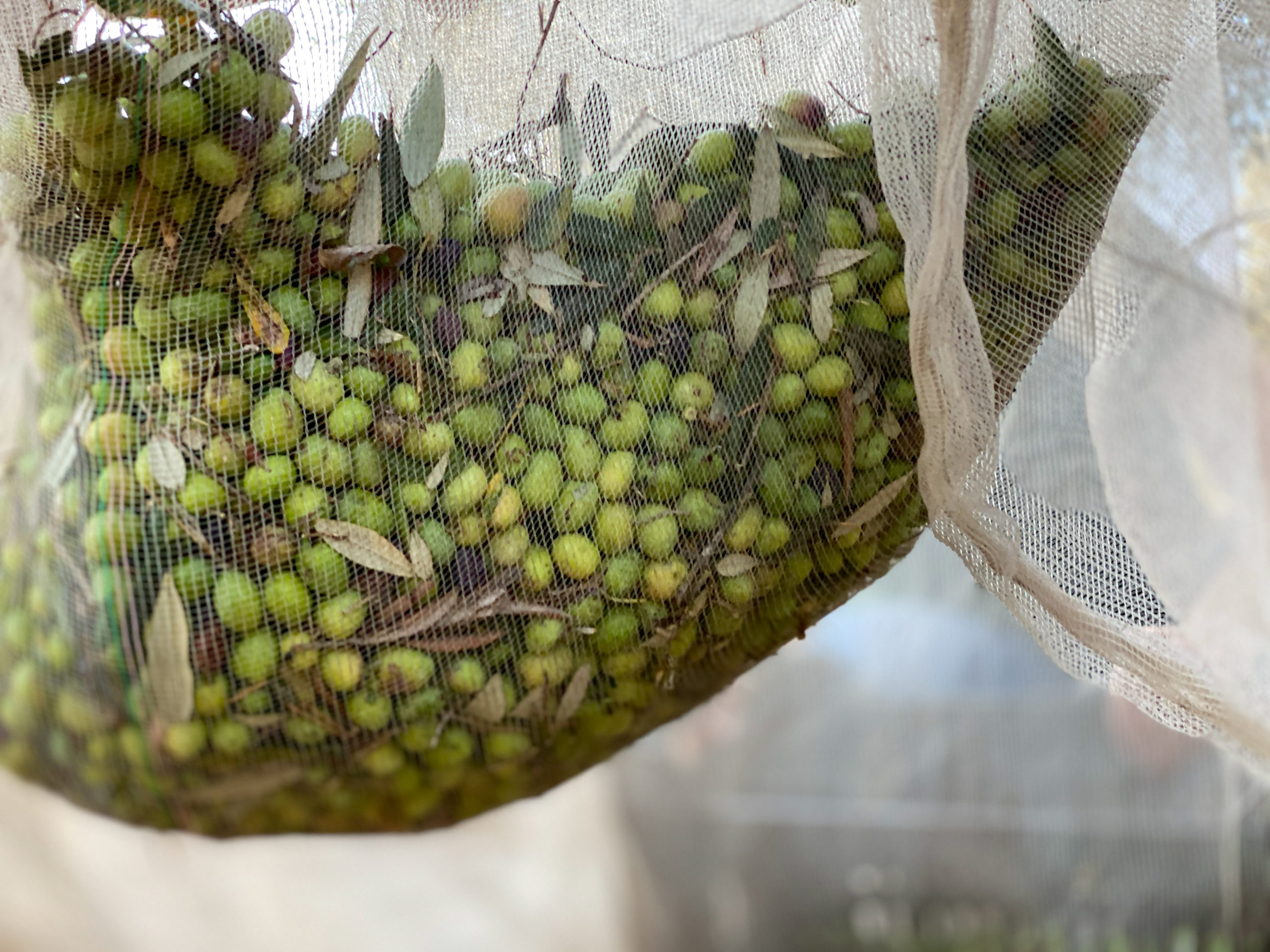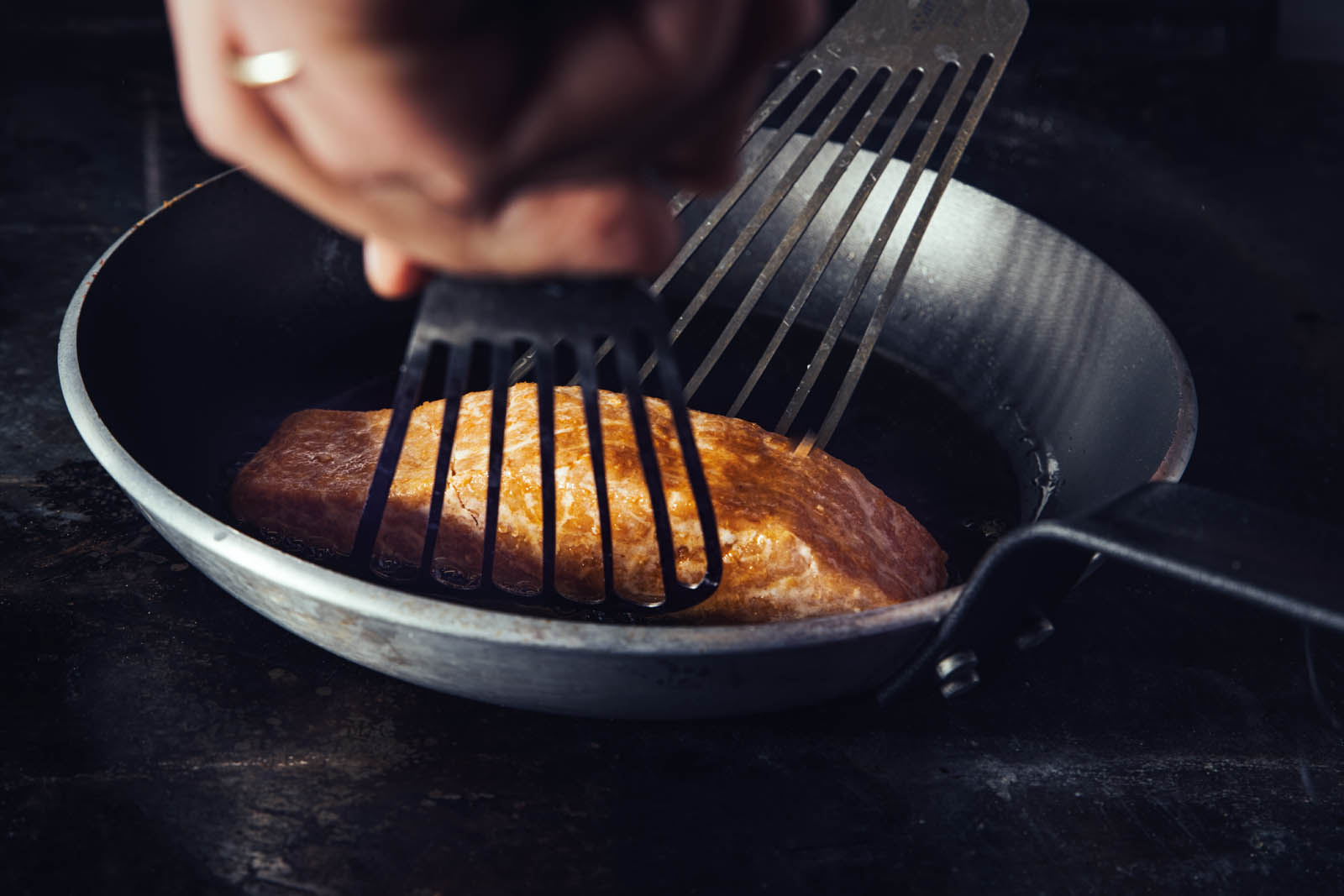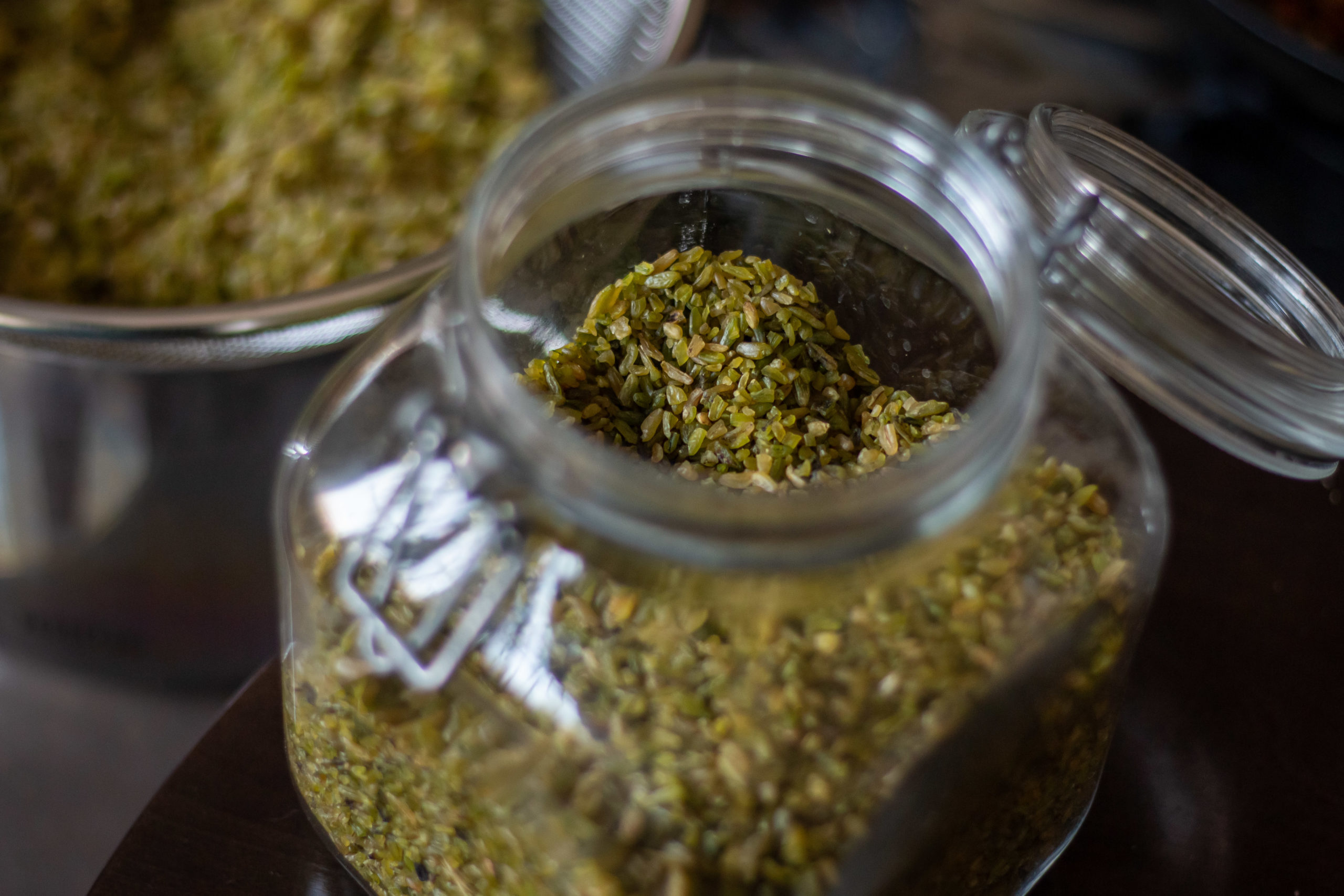Checkpoint 300 in Bethlehem is busy most weekdays around 5 a.m. as Palestinian men who work in construction make their way through a literal and metaphorical wall dividing the occupied West Bank from Israel. Their days are long: Many leave home between 2 and 4 a.m., only to return at night. On their journey and at their job sites, fresh vegetables, pita, and cups of coffee offer much more than fuel to sustain them as they work, they offer opportunities for community and a sense of home in exile.
Last year, 140,000 Palestinians were registered to work legally in Israel with another 40,000 in settlements in the West Bank. Most work in construction. At the same time, it’s estimated an additional 40,000 Palestinians regularly crossed into Israel illegally to get to work, living with the constant fear of being caught and sent to jail.
Whether with a permit or without one, these workers risk their lives in hopes of feeding their families and all are constantly aware of the control and surveillance of their movement. Most have few rights, knowing they will be paid a daily wage instead of a salary and that they won’t be compensated for injuries, or even death, on a construction site.
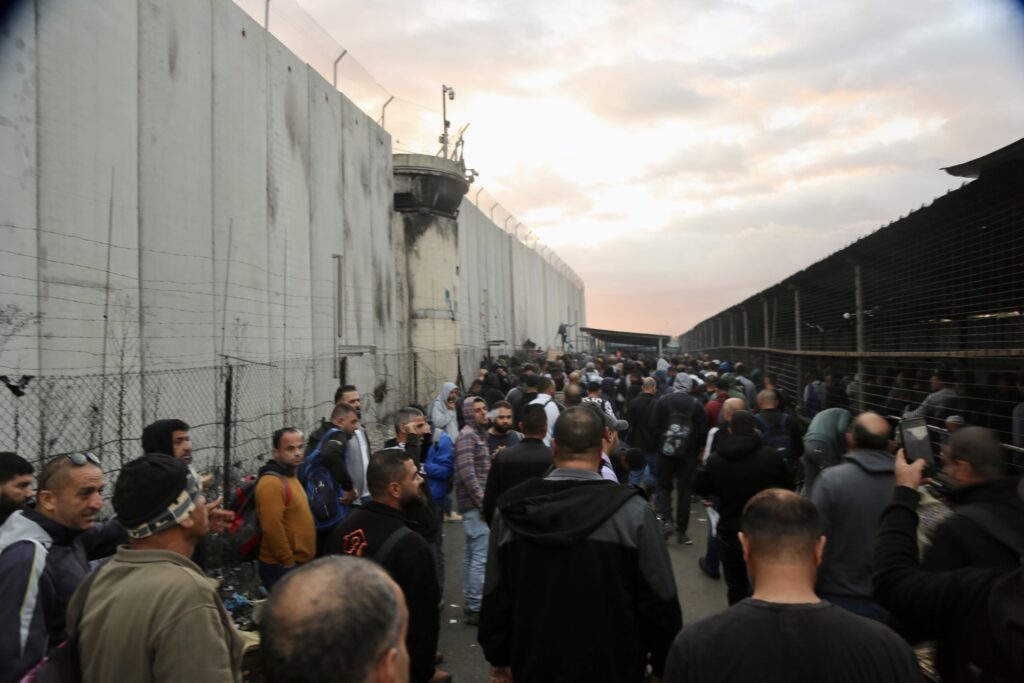
Palestinian workers traveling to large cities for jobs is relatively new. Before the 1920s, most worked as fellaheen (often translated as farmers, but referred to as peasants within Palestinian society), while workers in the cities like Jaffa, Haifa, and Jerusalem, came from nearby Arab countries. After losing their lands and cities in 1948, Palestinians had few work opportunities. That started to change in 1967 and the first intifada (1987-1993) was a turning point with a noticeable increase in Palestinian construction workers in Israel. But harsh circumstances and constant changes in regulations make these workers act as survivors fulfilling basic needs.
That starts at home as they pack up just a few belongings for their day ahead: Smaller bags can mean shorter searches by border patrol and for those who cross illegally, carrying as little as possible is vital since they may need to run at any moment to escape security patrols. Still, food is always considered, writes West Bank-based architect and author Suad Amiry in “Nothing to Lose but Your Life: An 18-Hour Journey With Murad.”
In one of the few accounts from a woman of this journey, Amiry disguises herself as a man and accompanies her gardener Murad as he travels illegally from Ramallah to a construction site in the Israeli town Petah Tikva. She notes and shares the food on the way: The aroma of a tasty cup of tea provided by the van driver while waiting, the fixed breakfast time, and the practice of bringing just the right amount of food to cover their stay.
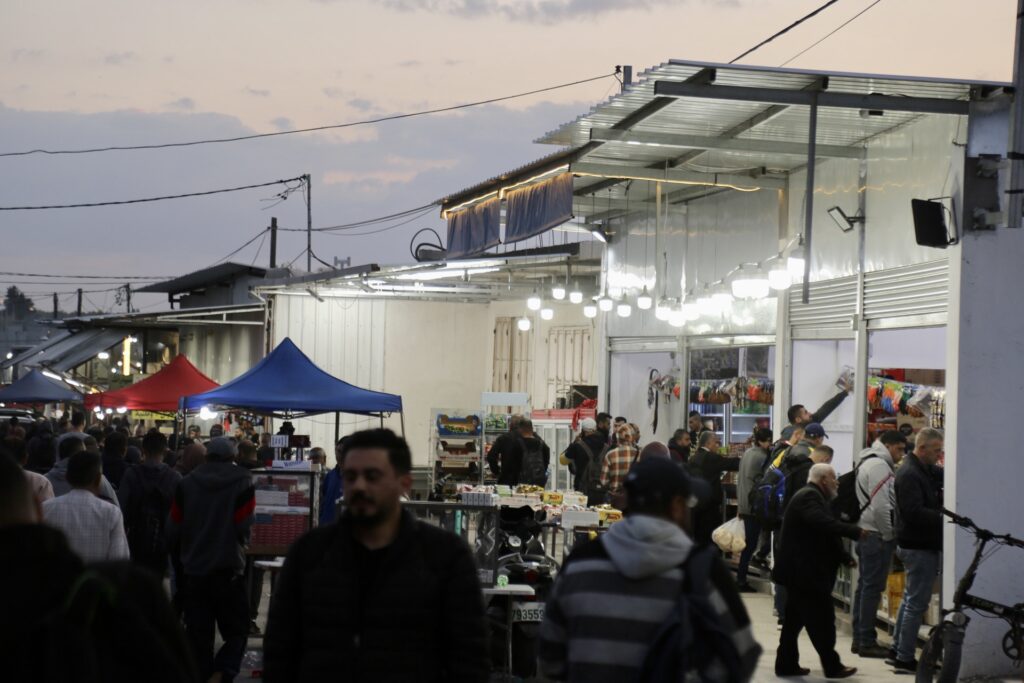
Across the Border, Falafel and Hummus Became an Identity Struggle
Many would assume that Palestinian workers would eat foods of home like falafel or hummus (thought of in Israel as a “cheap Israeli bite”) at any of the restaurants near their job sites. But rarely are Palestinian construction workers seen on Israeli streets or consuming products/services in the market. Not only are the goods too expensive, but workers feel they are in an unfamiliar place and fear being harassed. Instead, Palestinian construction workers opt to stay at their job sites.
AlAli, a Palestinian carpenter from the West Bank who agreed to speak with me but asked that I not use his first name, explained with a smile: “If I buy a falafel sandwich for 2 shekels at home, why should I pay 18 shekels in Israel?” There is a unique irony in not being able to afford food from one’s culture within another culture.
AlAli continues to explain “We usually take our bread, canned food and any kind of seasonal vegetables to the other side. Arabic coffee is so important that we never forget to take a pot.” Workers typically spend between 7 and 28 shekels for a meal or two a day, making sure to get a balance of protein, fiber, vitamins, and carbohydrates.
Several interviews with construction workers and a lifetime of observation show that Palestinian workers seem to leave what they define as “home” after crossing the border. This is reflected in businesses created on the two sides of the checkpoints. At Checkpoint 300, businesses once frequented by tourists have turned into falafel and shawarma places to serve construction workers before they head to the line at the checkpoint or on their way back home. Street and cart vendors sell water, coffee, tea, and small seasonal snacks like corn and fava beans. The type of food served changes from morning to evening and summer to winter, with vendors smartly fulfilling workers’ needs. All offer a taste of home.
Food customs can also vary by checkpoint. At some, it’s more common to bring prepared food from home, while at others, many wait to buy their lunch until just after they cross to the other side. AlAli explains: “We are often troubled at the checkpoint because of the food we hold with us, so we prefer to buy it from a supermarket just after crossing the checkpoint. They sell Palestinian items with the same prices found in Bethlehem.”
A pita, Israeli “shamenet” yogurt (similar to sour cream), a cucumber and a tomato is the most well-known meal construction workers eat, plus coffee and tea. Canned tuna, Palestinian “Sinora” luncheon meat, or any other canned food full of protein are also popular.
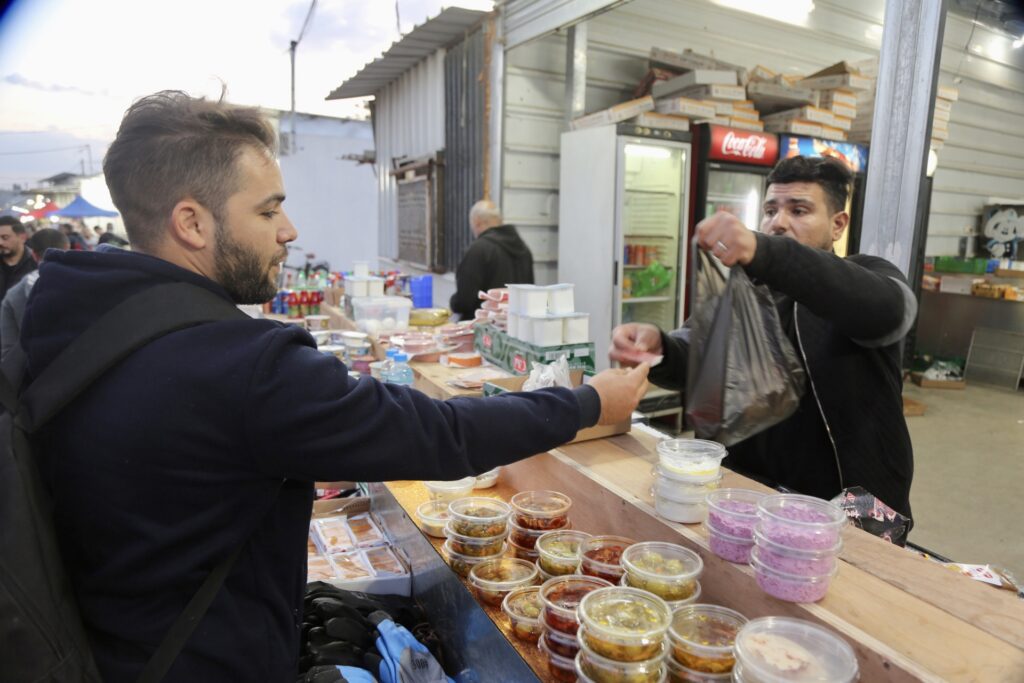
A Feeling of Exile on ‘the Inside’
On “the inside,” as some Palestinians refer to what’s inside the 1948 green line, there’s a feeling of being exiled at home. So, it’s not only the matter of high prices that keep workers from buying lunch once they leave the border area, but a desire to create a home away from home with a world of familiar language and culture. The Arabic writing on the packaging from the checkpoint shops, and the tastes and smells of the familiar foods are powerful.
They help create what French sociologist Pierre Bourdieu calls a well-fitted habitus, which he defines as “a subjective, but not individual system of internalized structures, schemes of perception, conception, and action common to all members of the same group or class.”
A home is where one possesses maximal practical know-how, he explains, knowing what everything is for and when it ought to be used. Above all, it involves living in a space where one recognizes people as one’s own, where one feels recognized by them as such — and where one knows that at least some people like friends or family can be morally relied on for help. Those from the same family, clan, or village help one another to find jobs. They share food at lunch, drink coffee together, and most importantly cross illegally together.
The feeling of community is crucial for these workers and their safety. At construction sites, they mostly eat in small groups, an understandable act of protection in a space where illegal workers fear being arrested and all of these workers know they could experience harassment.
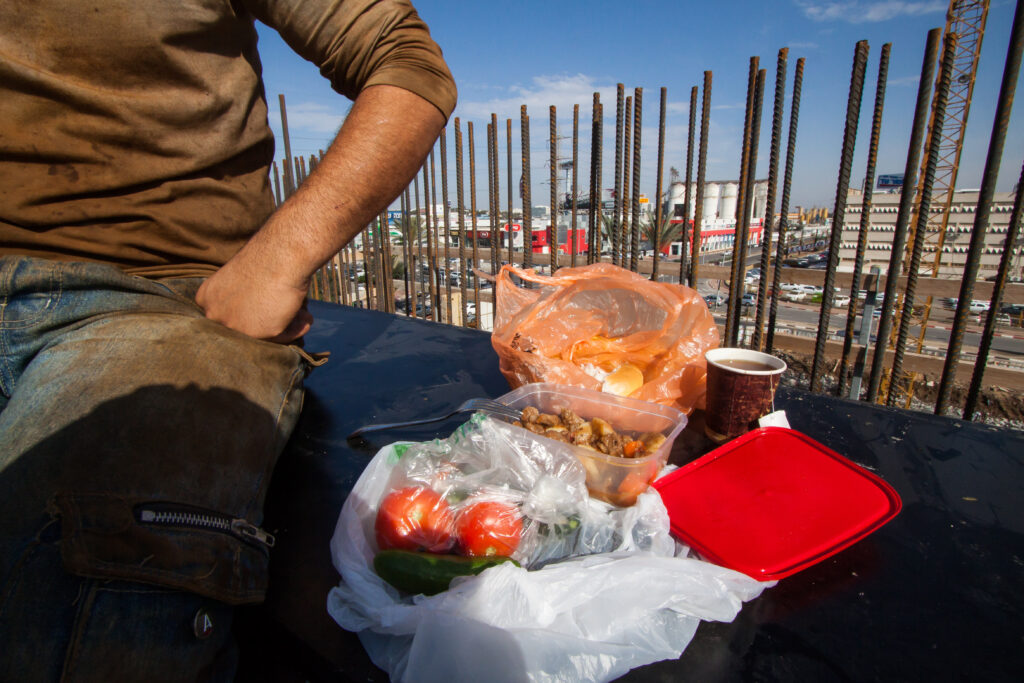
Foods From the Exile Find a Place Back Home
Like those Palestinians who live in exile overseas and are able to return home, these workers bring elements of a different culture, including products, and living standards from “the inside” back to their villages. Food is one of the clearest examples. Shamenet yogurt and Café Elite have become part of the major necessities in many Palestinian houses in the West Bank. I always wondered why that was until I noticed this was more prevalent in families and villages where many work in construction.
For the children of these workers and their friends, Israeli snacks like Bamba, chocolate wafers, and artificial fruit juices are enjoyed almost daily. But rarely are the brands the same, instead, Palestinian factories have opened in the last 15 years to fill the need, producing more affordably priced snacks with similar names to the Israeli brands written in Arabic.
Perhaps the most powerful example of this is Bisli, a crunchy snack that tastes like falafel, a food that once Palestinian construction workers cross to the inside, they can no longer afford or access comfortably. Even at home, their families may now eat Bisli more than falafel itself. Because of the occupation, we didn’t have a chance to develop or modernize our food culture in the same way — instead, we import it from the other side of the wall.
